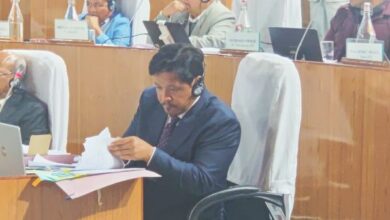Reverse research in action: Aligning research with governance
If used well, reverse research methodology will be appreciated

 Reverse research methodology is an important topic worldwide, especially for Think Tanks and research organisations working in the space of the public policymaking process. Typically, it is considered an approach where policymakers or communities can drive the research agenda to suit their needs. However, it may not serve academic purposes.
Reverse research methodology is an important topic worldwide, especially for Think Tanks and research organisations working in the space of the public policymaking process. Typically, it is considered an approach where policymakers or communities can drive the research agenda to suit their needs. However, it may not serve academic purposes.
Reverse research methodology includes a problem statement defined by policymakers and stakeholders, Think Tanks and research organisations tailor their research approach based on this. It becomes even more relevant when one can see the long-term benefits and they include:
- Aligning research to priorities based on the inputs/requests from stakeholders-heath, education, urban transport, migration, to name a few. It becomes demand-driven and needs-based research
- Helping in addressing real-life problems directly and building solid evidence for decision-making
- Encouraging co-production of knowledge through collaborations and dialogues, which in turn strengthens research policy partnerships and reduces the research-to-policy gap
- Enhancing accountability and transparency by contributing to inclusive and participatory governance and holding institutions accountable to evidence-informed action
- Promoting innovation in Policy Design by encouraging non-traditional approaches and context-specific insights.
Elements of Reverse Research Methodology
Some features which play an important role in reverse research include:
- Conduct research based on the demands of stakeholders
- Design questions based on real-world policy challenges or requirements of the government
- Suggest recommendations based on ongoing discussions for easy and valuable implementation
- Generate actionable recommendations and not just theory-based
Advantages
Like any other research efforts, reverse research also has some benefits, and they include:
- Advocating policy, research and relevance
- Establishing trust between policymakers and researchers, apart from encouraging collaboration
- Providing solutions since it addresses real-time policy needs
- Support evidence-based decision making.
Barriers
While there are clear benefits, there are barriers too, and they include:
- Lack of time and quick turnovers required by policy makers may stall rigour and reliability
- Research is politically driven and this may constrain the broader need for research
- Neglect organisational issues
- Limit long-term research agenda and reduce investment in foundational studies.
Compromise ethical approach or use data effectively due to pressure and also due to developing “usable” recommendations.
Examples
Kenya and India Research in Education
- What? Both governments wanted to know why learning outcomes were poor despite an increase in school enrolment
- How? NGOs and policymakers conducted studies using randomised evaluations and a corrective education approach
- Outcome: Some reforms to include Teaching at the Right Level (TaRL) were introduced
Tamil Nadu’s Health Insurance Scheme (CMCHIS)
- What? The Government of Tamil Nadu wanted to know the response of the people to the usefulness of its health insurance programme
- How? Encourages studies to evaluate the satisfaction of beneficiaries, access to hospitals and cost-effectiveness
Outcome: Based on the results, redesigned the scheme and included more elements
Steps to Practice Reverse Research Methodology
Step 1: Understand the issue that is a challenge for the government
Step 2: Get specific data from the government and analyse the problem using parameters that meet the requirement
Step 3: Identify needs that result in impactful and context-sensitive policy recommendations
If used well, reverse research methodology will be well-received and appreciated. The general challenges in policymaking are not addressing issues in the right manner that is required, inability to understand the needs of the communities, not providing policymakers with information that they understand and can put to action (implement), researchers focusing on academic and pedantic approaches to using research methodology, which sometimes does not serve or is useful to policymaking processes.
READ OTHER ARTICLES BY THE AUTHOR





